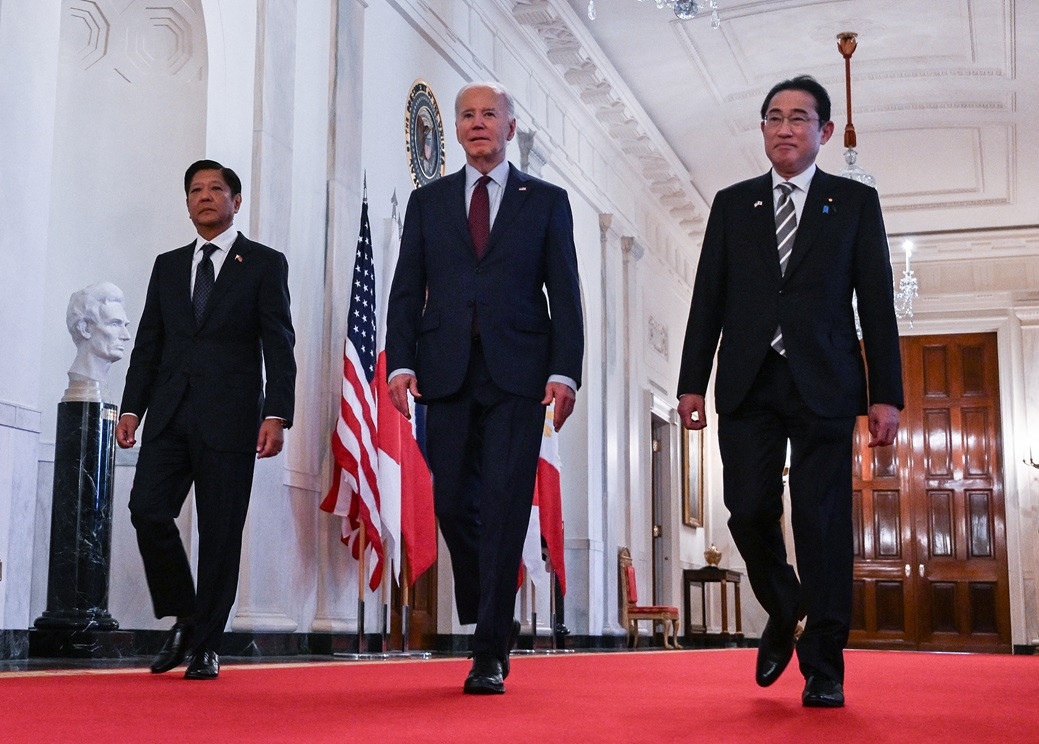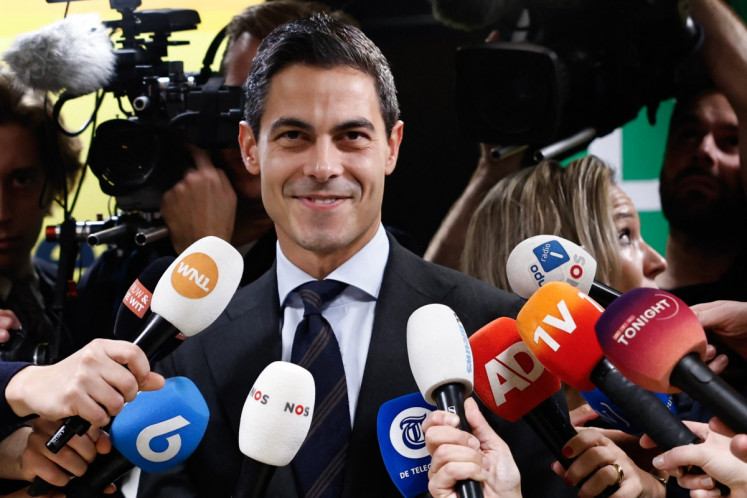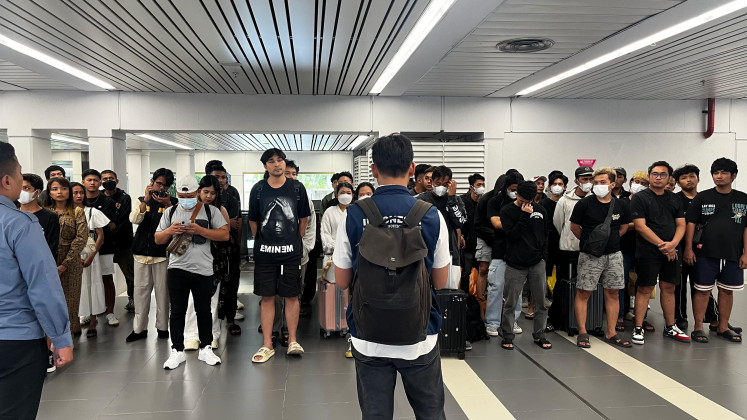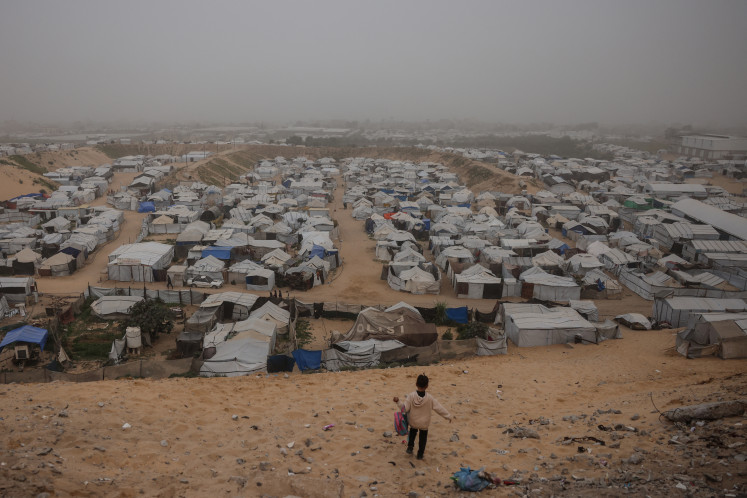Popular Reads
Top Results
Can't find what you're looking for?
View all search resultsPopular Reads
Top Results
Can't find what you're looking for?
View all search resultsJapan must strengthen NATO ties to safeguard global peace, PM says
In written remarks ahead of his attendance at a NATO summit in Washington DC this week, Kishida also signaled concern over Beijing's alleged role in aiding Moscow's two-year-old war in Ukraine, although he did not name China.
Change text size
Gift Premium Articles
to Anyone
R
ussia's deepening military cooperation with North Korea has underlined the need for Japan to forge closer ties with NATO as regional security threats become increasingly intertwined, Prime Minister Fumio Kishida told Reuters.
In written remarks ahead of his attendance at a NATO summit in Washington DC this week, Kishida also signaled concern over Beijing's alleged role in aiding Moscow's two-year-old war in Ukraine, although he did not name China.
"The securities of the Euro-Atlantic and the Indo-Pacific are inseparable, and Russia’s aggression against Ukraine and its deepened military cooperation with North Korea are strong reminders of that," Kishida said.
"Japan is determined to strengthen its cooperation with NATO and its partners," he added.
The world, the Japanese leader said, should not tolerate attempts by some countries to disrupt the established international order and reiterated a warning that Ukraine today could be East Asia tomorrow. He also urged cooperation to confront new security threats that transcend geographical boundaries, such as cyber-attacks and conflicts in space.
South Korea, Australia and New Zealand, which along with Japan are known as the Indo-Pacific Four (IP4), are also attending the July 10-11 meeting with NATO leaders.
South Korean President Yoon Suk Yeol told Reuters this week that he planned to discuss the threat Pyongyang poses to Europe by deepening its Russia ties.
North Korean leader Kim Jong-Un signed a mutual defense pledge with Russia last month during President Valdimir Putin's first visit to Pyongyang in 24 years, and expressed his "full support" for Russia's war in Ukraine.
The US and its allies have accused Pyongyang of providing ballistic missiles and artillery shells that Russia has used in its war in Ukraine and say they fear Moscow in return could provide support for North Korea's nuclear missile development.
Washington has also said China is supplying drone and missile technology, satellite imagery and machine tools to Russia, items which fall short of lethal assistance but are helping Moscow build its military to sustain the Ukraine war. Beijing has said it has not provided any weaponry to any party.
Without naming China, Kishida told Reuters "some countries" have allegedly transferred dual-use civilian-military goods to Russia which has served "as a lifeline" for its Ukraine war.
"It is necessary to grapple with such situations in a multi-faceted and strategic manner, taking a panoramic view that considers the full range of international actors fueling Russia’s attempt to change the status quo by force," he said.
"The geographical boundary of 'Euro-Atlantic' or 'Indo-Pacific' is no longer relevant in safeguarding global peace and security. Japan and Indo-Pacific partners can play a great role for NATO allies from this perspective."
Constrained by decades of pacifism, Tokyo has been reluctant to supply lethal aid to Ukraine.
It has, however, provided financial aid to Kyiv, spearheaded efforts to prepare for its post-war reconstruction, and contributed to NATO’s fund to provide Ukraine with non-lethal equipment such as anti-drone detection systems.
Tokyo has also repeatedly warned about the risks of a similar conflict emerging in East Asia, where China has been taking an increasingly muscular stance towards its territorial claims including the democratic island of Taiwan.
"This summit is a critical opportunity for Japan, the US, and the other NATO allies to confront the ongoing challenges against the international order and to reaffirm values and principles that have shaped global peace and prosperity," he said.
There may be limits, however, over how far NATO members are prepared to go in forging closer ties in Asia. A plan that surfaced last year for NATO to open a liaison office in Japan, its first in Asia, was blocked by France and criticized by China.










